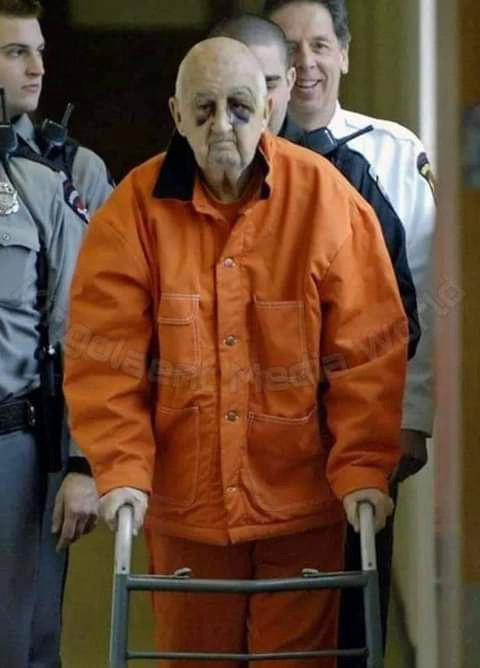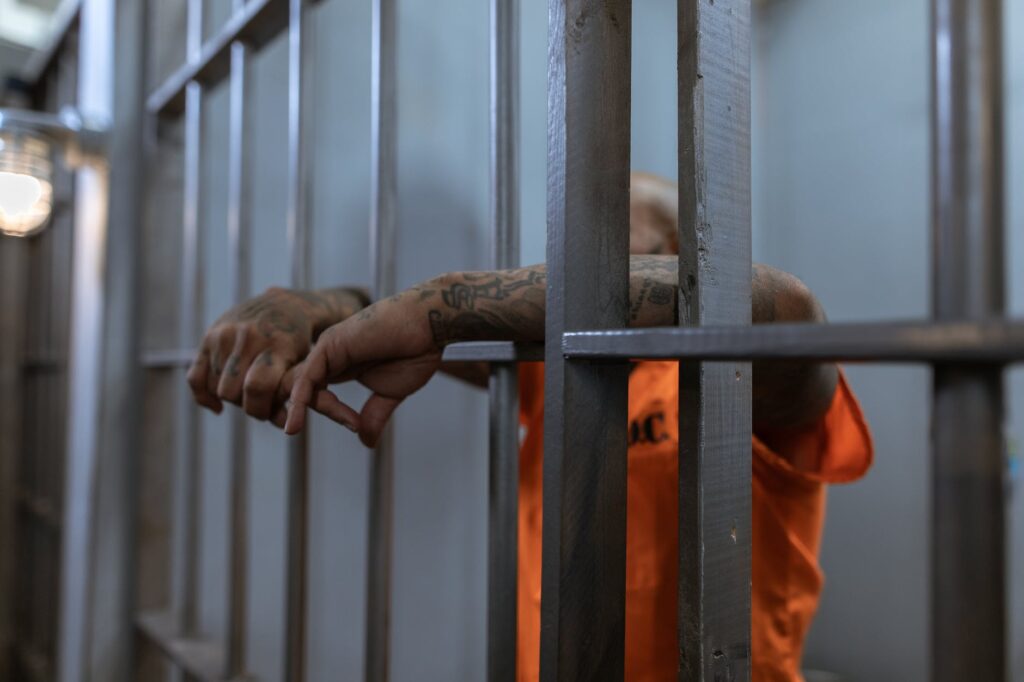After 71 years of serving a life sentence, Francis Clifford Smith is the longest-serving prisoner in the United States. He’s also the second oldest American currently serving time. The 94-year-old has been behind bars since 1950, only enjoying a brief stint of freedom since then. (www.jonesaroundtheworld.com)

The world has undergone cataclysmic changes since Smith was last a free man. His achievement is notable because prison isn’t the best environment for longevity. The food is notoriously bad, healthcare may not always be up to scratch, and violence is commonplace (at least according to the movies).
Top that off with the mental stress of incarceration, especially when there is no hope of ever seeing the outside world and living long starts looking a long shot at best and a pipe dream at worst. Suicide is the leading cause of death in American state prisons.
Contents
Contents
Francis Clifford Smith’s early life
Smith had an extensive criminal record stretching back to the time he was 13. He had quite a few stints in juvenile detention. He committed burglaries and stole cars among other petty crimes. He continued his criminal career into adulthood and was only 23 at the time of his murder conviction in 1950. A burglary at the Indian Yacht Club in Greenwich, CT, went awry. A security guard named Grover Hart was shot and survived for two days before dying.
With a description from Grover, police arrested George Lowden and Smith. They were linked to the murder by ballistics evidence. The two were also caught with several items stolen from the club. George Lowden took a plea deal in exchange for testifying against Smith.
Francis Clifford Smith’s trial
Smith was offered a plea deal for his confession but he turned it down, insisting on his innocence. The case went to trial and Smith got convicted of first-degree murder. George Lowden recanted his confession on the witness stand. He claimed police had extracted it by force but that didn’t help matters. Smith was sentenced to death.

There have been several doubts raised about Smith’s guilt. In addition to his own protestations of innocence and Lowden’s recantation, a second witness, Edith Springer has confessed that she lied on the witness stand. Nevertheless, all these arguments have been heard and dismissed by various appellate courts over the years.
Francis Clifford Smith’s date with the executioner
In June 1954, Francis Clifford Smith shaved his head. He needed to make it easy for the electrodes. After three failed appeals, five reprieves, and two stays of execution, his legal options were exhausted. His date with the electric chair had finally come.
We have no way of knowing Smith’s mental state on that day but it must have involved quite a bit of reflection, resignation, and maybe some hope for a miracle. That miracle came. A mere two hours before he was scheduled to be electrocuted, the Connecticut State Board of Pardons and Paroles commuted his sentence to life imprisonment.
Given how long that life sentence has turned out to be, does Smith ever wish things would have turned out differently? Would a quick death have been preferable to an additional 67 years of incarceration? We have no way of knowing Smith’s opinion on the matter and answers vary from person to person. Some would choose a quick death. Others would rather live on the hope, however minuscule. What would you choose if you had the benefit of hindsight?
Francis Clifford Smith behind bars

Francis Clifford Smith hasn’t been a model prisoner. He has wracked up countless infractions behind bars and even escaped from prison for 11 days in 1967. By this time Smith had served 17 years of his sentence and would have been eligible for parole in three years. He was transferred to a minimum-security work camp where he worked as a mechanic.
One day, he stole a truck and hightailed it to freedom. An intense manhunt around Connecticut and Massachusets followed. It only ended when Smith was arrested in Winthrop, Massachusetts 11 days later.
He was carted back to maximum security prison and his sentence was increased by three to seven years. His lawyers argued that Smith was distressed after losing a federal appeal in a last-ditch effort to overturn his conviction but this fell on deaf ears.
Francis Clifford Smith’s parole
Smith eventually got paroled sometime in the mid-1970s but he only lasted 10 months outside. He was hauled back to prison in 1975 after violating his parole and has been there ever since. Smith appears to have given up after this. He hasn’t filed any further appeals, applied for parole, or even requested a release on compassionate grounds due to his age.
This is not uncommon among older inmates, many of whom are so institutionalized they cannot imagine a life outside prison. Many human rights activists argue that it would actually be crueler to release a man like Smith. In jail, he has structure, a routine, friends. Outside, there’s nothing. After 71 years behind bars, nearly everyone he knew before getting locked is dead.